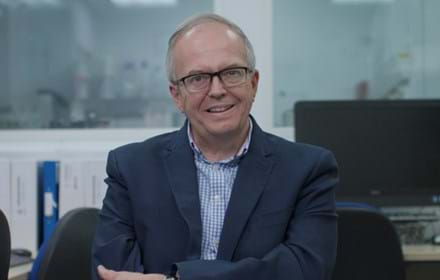
People with type 1 diabetes being denied access to insulin pumps across England
Meeting of diabetes healthcare professionals and government decision makers told that there is a “totally inequitable access to care” across the country.
Leading diabetes healthcare professionals have called for action on making care options and treatment available more equally – and not dependant on where you live.
Doctors told government officials that the UK is way behind Europe when it comes to making insulin pumps available for people with type 1 diabetes – and a recent survey has found that in some areas the technology, that can be used instead of insulin injections, is not available at all.
Healthcare professionals met politicians and government officials last week at the Westminster Health Forum on Improving diabetes outcomes in England – prevention, access and digital technology, at Glaziers Hall in London.
Talking about the variation in care and availability of insulin pumps, Dr Partha Kar, Associate National Clinical Director, Diabetes NHS England, said: “We have found that some NHS Trusts are not prescribing insulin pumps as they do not believe it is a viable treatment.”
Concern was raised that the UK “lags behind Europe” as insulin pumps not being made available in some areas.
Dr Emma Wilmot, Consultant Diabetologist, University Hospitals of Derby and Burton, said: “There is completely inequitable access to care and we urgently need to address this. Closed loop systems change lives.
“The insulin pump is the future of type 1 diabetes management. This is where type 1 diabetes is going. Insulin pumps are an effective way of managing type 1 diabetes.”
Healthcare chiefs also discussed how important the NHS Diabetes Prevention Programme is to reduce the burden of treating diabetes on the NHS.
Professor Jonathan Valabhji, National Clinical Director for Diabetes and Obesity, NHS England said implementing the NHS long term plan for diabetes to “develop at scale an evidence-based type 2 diabetes prevention programme” would provide people with type 2 diabetes empowerment and access to treatment.
Professor Valabhji said: “One in six of every hospital bed in the UK is taken by somebody with diabetes.”
Following successful trials by former DRWF-funded researcher Professor Roy Taylor, there is more and more evidence that remission in type 2 diabetes can be achieved with low calorie diets.
Professor Valabhji said the next step was to implement the low-calorie diet in live environments through the NHS. “The connection between obesity and type 2 diabetes is very clear,” he said. “The Healthier You: NHS Diabetes Prevention Programme has been adopted enthusiastically.”
Dr Jenifer Smith, Programme Director, NHS Diabetes Prevention Programme, Public Health England said: “We would estimate there are 5 million people in England and Wales at risk of developing type 2 diabetes. The NHS Diabetes Prevention Programme is to help people make sustainable changes in their lifestyle.
“Obesity is driving this rise in type 2 diabetes. The main thing we need to do is change our approach to eating.”
Support DRWF by making a donation here
Find out more about DRWF-funded research here
Find out more about DRWF fundraising here
For latest update follow DRWF on Facebook, Instagram and Twitter
To receive the charity’s latest bulletins as they become available, please sign up here
Read DRWF diabetes information leaflets here
Join the Diabetes Wellness Network here
I would like to make a regular donation of
I would like to make a single donation of
There are lots of ways to raise money to support
people living with all forms of diabetes.
Bake, Swim, Cycle, Fly ... Do It For DRWF!
Fundraise with us
Recent News


